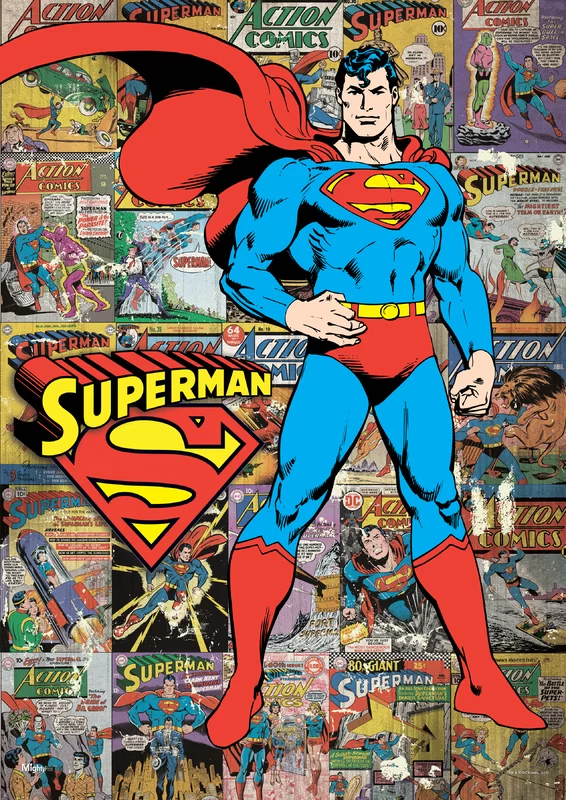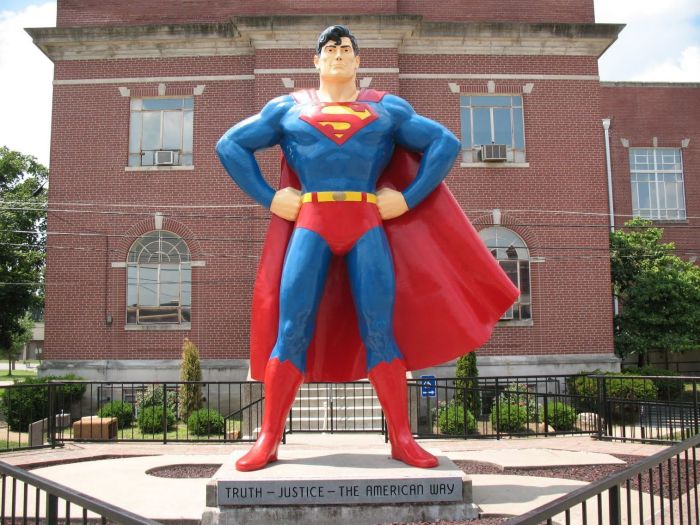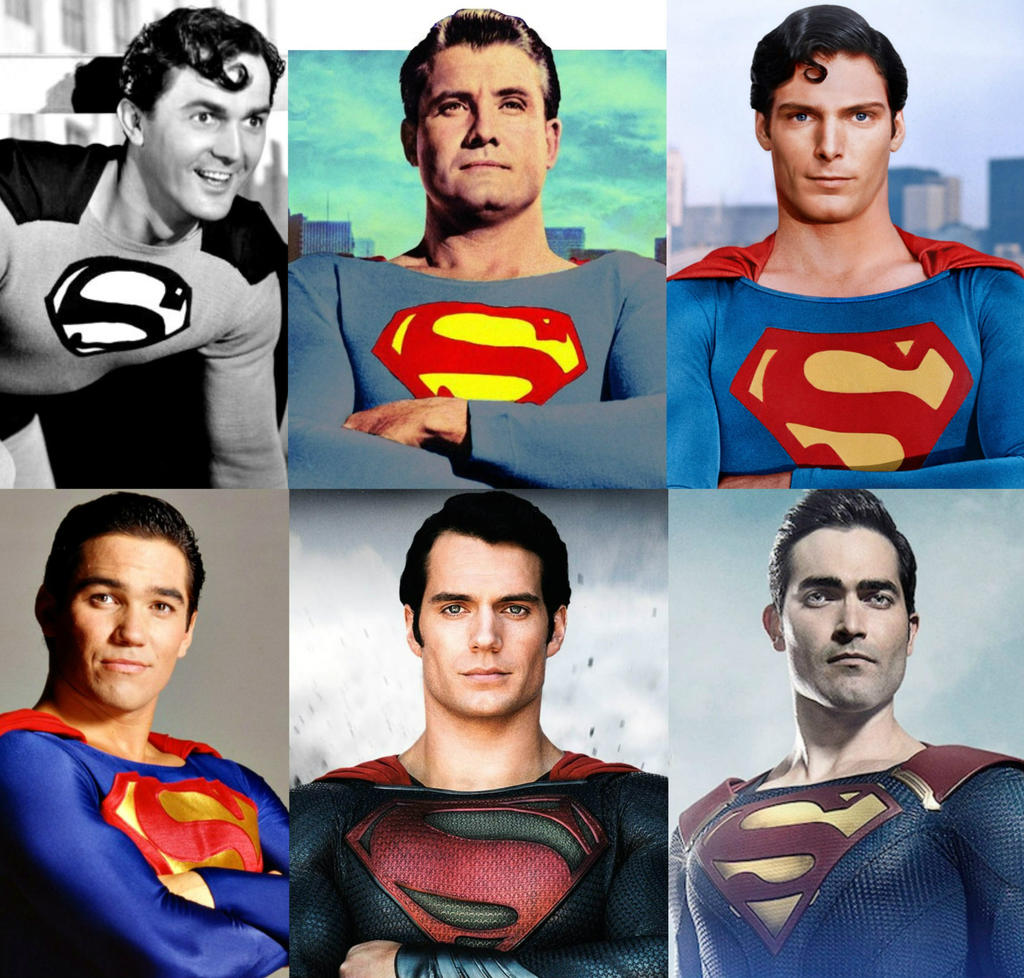
|
|
Woolstock, Iowa - Birthplace of George Reeves
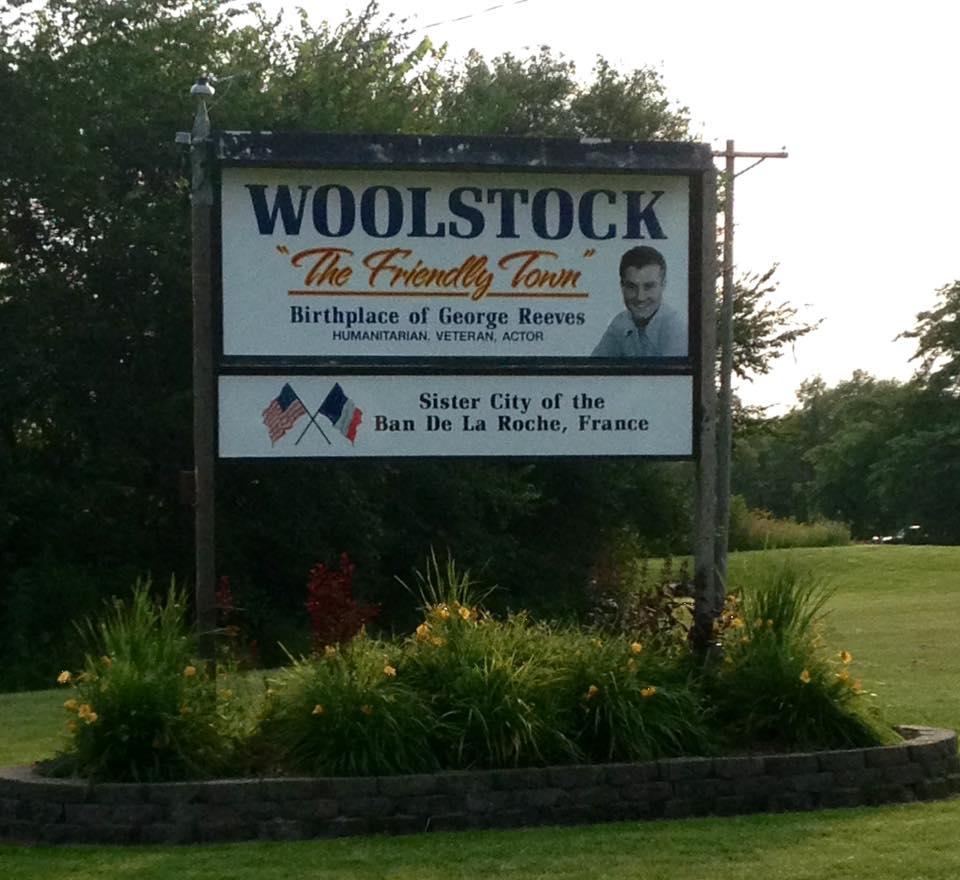
The city of Woolstock is one of a kind. No other place in the whole United States goes by this name nor anywhere else in the English speaking world! Woolstock received its name early on during the time when Woolstock Township was formed in 1858-59. Many early residents in the area raised large flock of sheep. They would travel to the south western part of the township that had a little village called "Wool Stock" where they met with traders who would buy their wool. Unfortunately, the wool trade was a failure for the early settlers, harsh winters and lack of prepared shelter for the heads allowed many to die, or be eater by wolves. The rest had to be destroyed or sold at reduced price.
Later on, a lot was platted in January of 1881 by the Western Town lot Company, the land department of the Toledo and Northwestern Railroad, to relocate the village of Woolstock. It was later incorporated in 1895. In 1915, (while the Brewers and baby George were living there) there were 387 inhabitants. Today there are approximately 200 residents.
Since the early days of Woolstock Township, many people were enchanted by the quaintness and beauty of its surroundings. Natural beauty surrounds Woolstock from every direction because of its 3 creeks and the Boone River. A comment written by on of the early settlers and county historian states: "A few such settlers would soon render Woolstock township a perfect Eden of loveliness."
In the early 1900s, Woolstock was not a bustling metropolis, but it was a busy little town. The old Main Street was located on today's Alice Street, a street that comes from the principle entrance into Woolstock from the north. It lead travelers right to the Train Depot to the south. In 1907, the Great Fire happened on Main Street and burned most of the businesses. As the reconstruction process began, other buildings were erected on a new street going west and east from the Depot. Rivalries began between both of these streets' businesses, and were commonly referred to as ?Gold Street and Silver Stree?. The newer west-east street is Woolstock?s main street now, known as Herman Street.
Some of the old Woolstock?s businesses around 1915 were: Jones and Sons Agricultural Implement, Harness Shop, Hardware Store, Shoe Store and Repair, and an Auto Garage; J.A. Robinson Auto Garage, Blacksmith and Wagon Shop; Farmers Savings Bank; State Savings Bank; L.N. Brindamour Barber Shop and Woolstock Hotel (where Helen Lescher Brewer lived with baby George during the time of the separation before the Brewers? divorce); Joseph Uregel Barber Shop; I.C. Crose Blacksmith shop; Paul Loux Masonry; Town Creamery; Reed and Brewer (George's dad) Drug Store (said to have been located where the current Post Office is); J.W. Weedman Dray Line; Farmers Co-Operative Company; Independent Grain and Lumber Co.; Reed and Malaisie Furniture and General Dealers; R.L. Frank General Dealer; A.D. Mourlam Livery; Clifton and Sons Lumber; Schmidt and McDaniels Meat Market; Hirt and Pool Moving Pictures Theater; Dr. C.J. Reed; Dr. J.C. Smith; Joseph Robinson Restaurant; Dr. Frank Boughten Veterinary; also, 2 grocery stores, dry goods store, newspaper, 2 ice houses, 2 cafes, Independent Order of Odd Fellows Hall, freight and passenger depot, livestock yard, etc.
Woolstock also had 3 churches during those early years (Baptist, French Lutheran, and Methodist). Today there are only to churches running: St. Peter's Lutheran and United Methodist. The old Baptist Church is now the Woolstock City Hall, and the French Lutheran church is used each year for the Friends of Ban de la Roche (France) Sister City Club's annual service in August, and is open for special services and call in tours.
Woolstock achieved its Sister City status in 1984 with Ban de la Roche, Alsace, France, after 2 other attempts had failed in 1918 and 1940 because of the World Wars. At one time Woolstock was a bi-lingual community where even up until the 1950s you could hear both French and English spoken fluently on the streets. Alsatian-Woolstockians often bury their loved ones at the old French Church cemetery.
There were many schools around Woolstock; mostly in rural areas, but there was a large school building that ran for 20 years starting in 1900. Unfortunately it burned down and another school was erected a block away. It too did not last after it closed in 1972, and then vandals had their way with it and it was destroyed completely. Both open lots are now Woolstock's city parks: Small Park and Big (or Large) Park. One of the best things that came out of Woolstock's school district was the founding of the 4-H organization. O.H. Benson arrived in rural Woolstock in 1898 and taught for 3 years. He eventually became county superintendent, and in 1907 founded the 4-H organization. The first club house for the organization was located at a little rural school building just east of Woolstock.
George Reeves in Woolstock
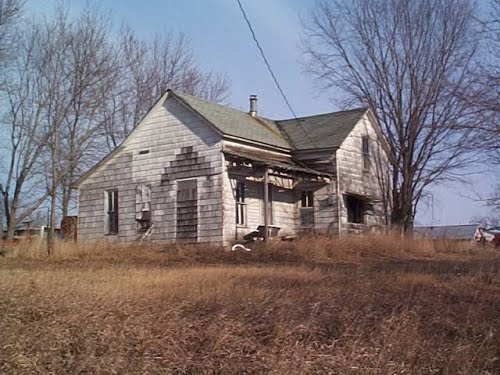 On January 5th, 1914, George Keefer Brewer was born to Helen Lescher Brewer and Don Brewer of Woolstock. At the time of his birth his parents had been renting 2 front rooms in the home of the Fischers. So and so was the midwife that delivered little George in the Fischer home on that cold January day. Marie Claude was his babysitter (Her experiences with George will be coming soon).
On January 5th, 1914, George Keefer Brewer was born to Helen Lescher Brewer and Don Brewer of Woolstock. At the time of his birth his parents had been renting 2 front rooms in the home of the Fischers. So and so was the midwife that delivered little George in the Fischer home on that cold January day. Marie Claude was his babysitter (Her experiences with George will be coming soon).
Helen Lescher, George's mother, came from Galesburg, Illinois, which is also where she met George's father, Don Brewer, while he was at Pharmacy school. She was a child from a wealthy and prominent Galesburg family. Her move to Woolstock was made after she had become pregnant with George and came around the time of her marriage to Don Brewer in August of 1913. She disliked Woolstock because of its small town setting and her desire for more attention and fancy flare that she could not receive in it.
After the birth of George, Don soon acquired a small bungalow home on present day Cecilia Street. Their move there did not tame the flames already drawn by Helen, and Helen became disappointed that Don didn't want to achieve more then what he already had with his pharmacist job in a small rural community. After a year or so, she would request separation and a divorce. There is talk that Helen ended up staying at the Woolstock Hotel on the west corner of Main Street (now it would have been located on the corner of Herman, Nellie, and Alice Streets across from the grain silos/elevator) during the separation. After the divorce, Helen eventually moved with George to Pasadena, California, near her sister, where she would meet her 2nd husband, Frank Bessalo. Frank eventually adopted George, and Helen made up fake documents about George's past and told him that his real father committed suicide. Later George would meet his father unexpectedly during a show that George acted and toured with during the 1940s, after the success of Gone with the Wind (George played Stuart Tarleton). George was surprised that his father was alive, and was angry at Helen. He would never meet with his father after that because he thought too much time had gone by.
Don Brewer, himself, was born and grew up around the area of Woolstock in near by Webster City. He continued with business at the Reed and Brewer Drug Store, but would eventually move to Mason City, Iowa.
